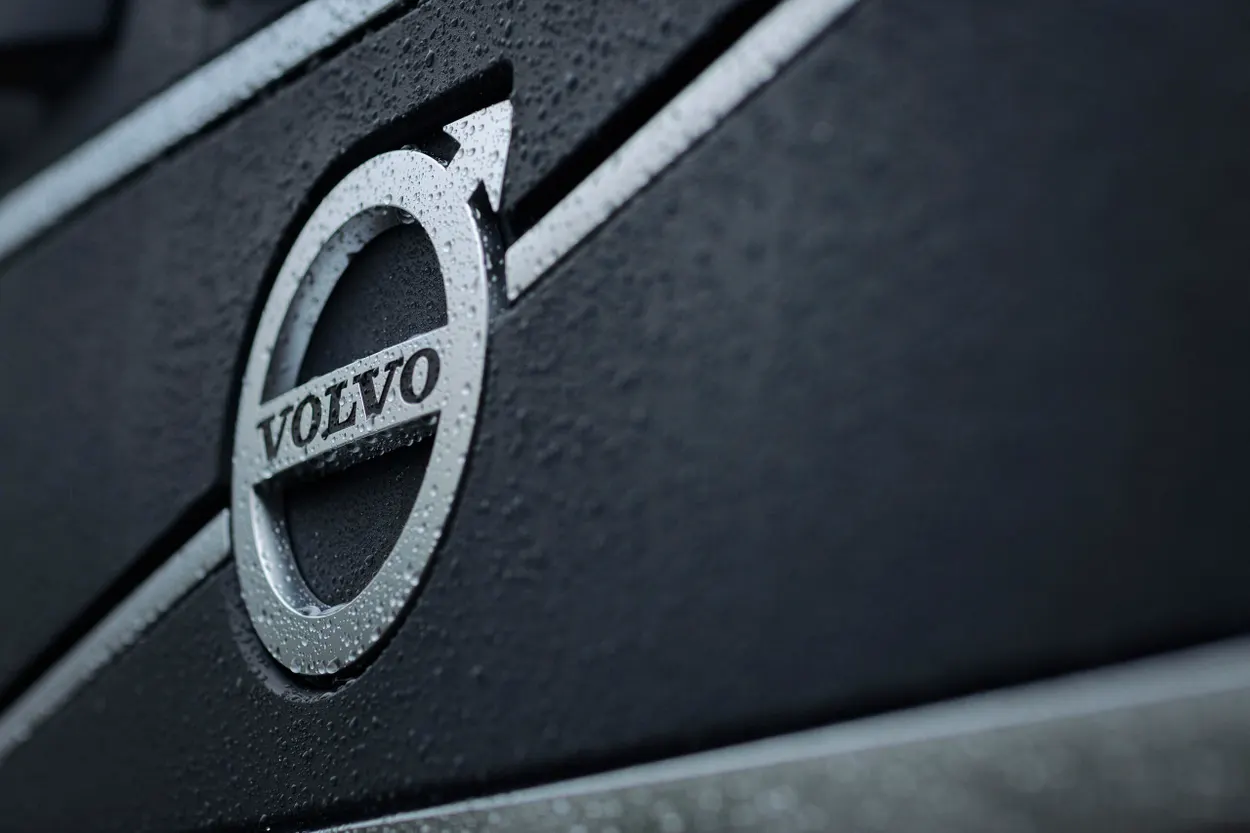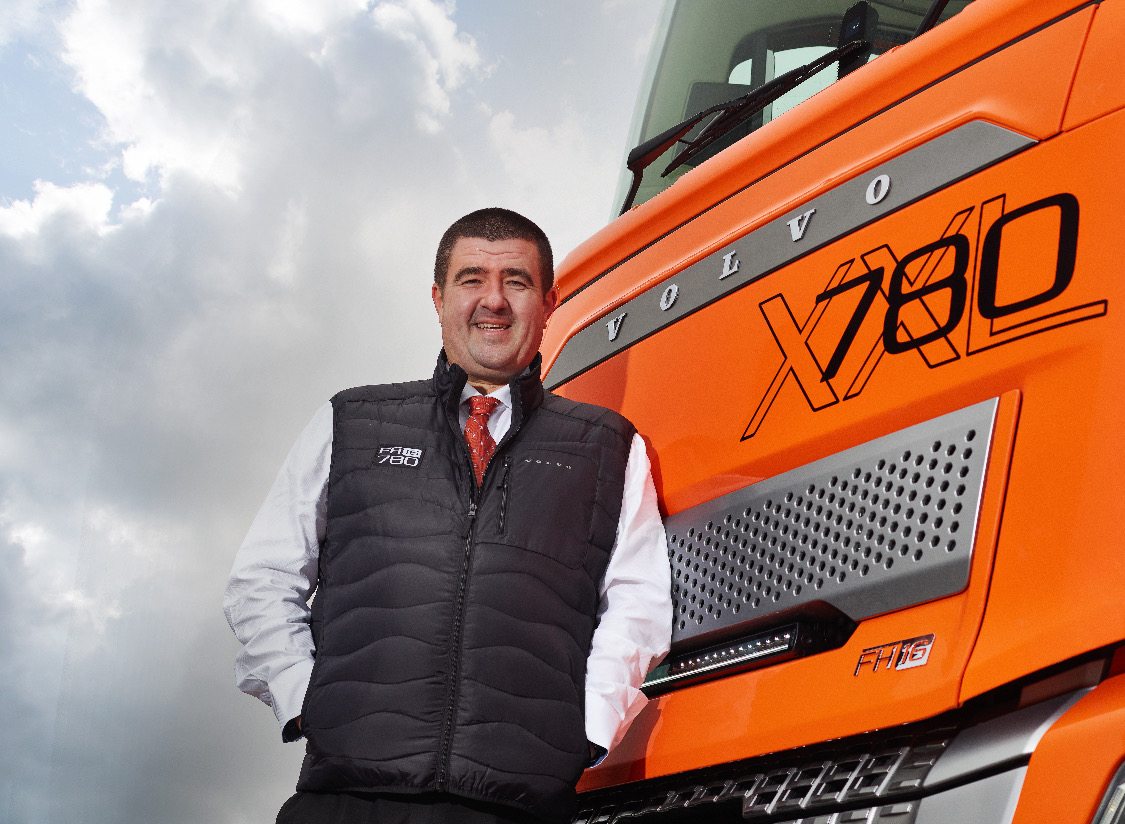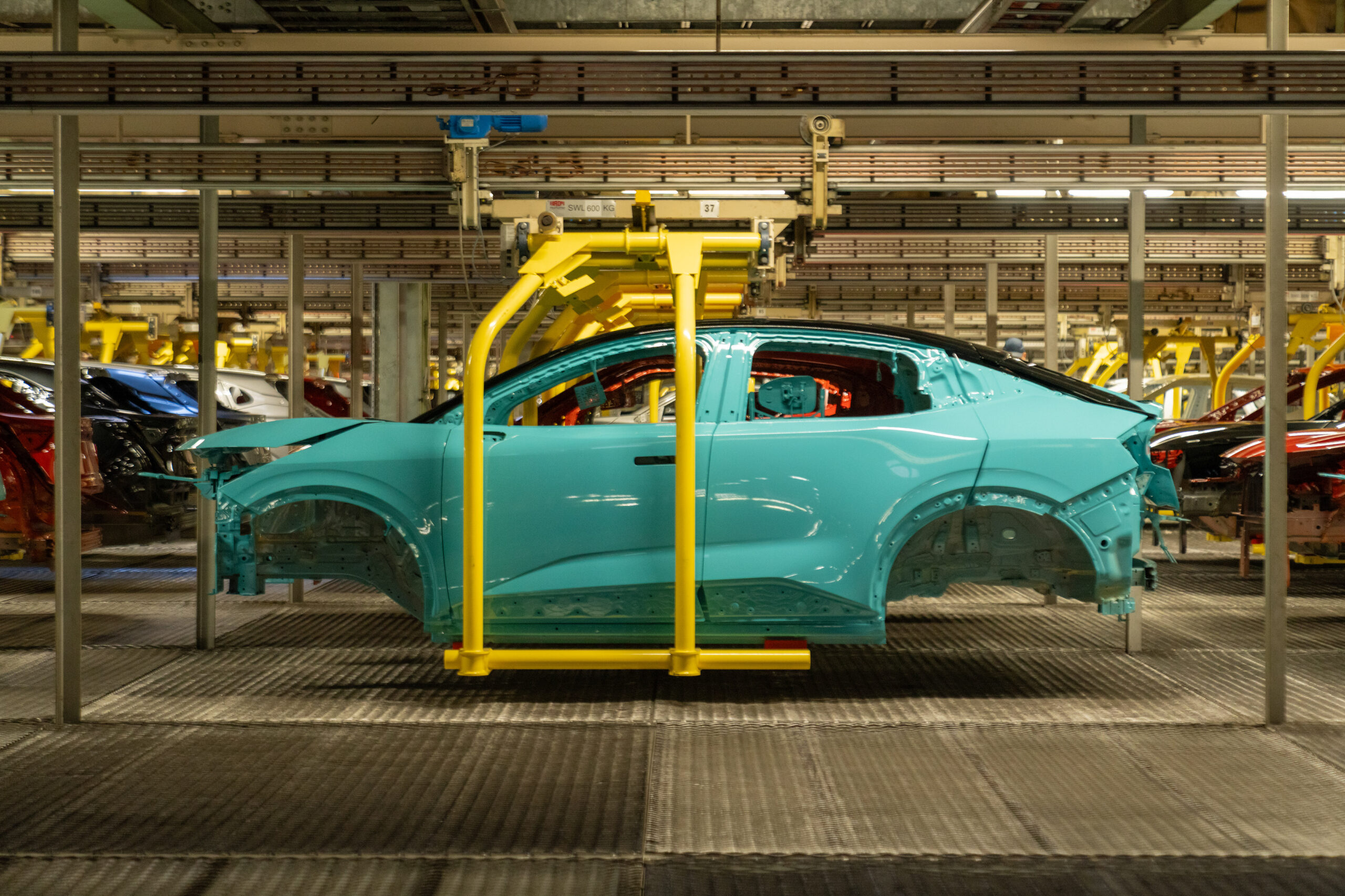
Volvo Trucks recently opened the order books for the FH Aero Euro NCAP Special Edition truck. Why did you launch the special edition and what was the reasoning behind it?
When the Volvo FH Aero became the first and only long-haul truck to score five stars in the inaugural Euro NCAP truck safety test last year, it was a huge result, and we wanted to do something special to recognise that.
By launching a Special Edition model – our first such truck for five years – we are helping our customers to stand out and demonstrate their commitment to safety.
We’ve limited the Special Edition, with its unique livery, to just 30 examples, but we’ve not limited the sale of five-star safety rated trucks. That’s unlimited!
What do you think are the major challenges for the CV industry at the moment?
Without a doubt, it’s the pressure on manufacturers and operators alike to decarbonise. The move away from diesel represents a generational shift in technologies, but because of a lack of charging infrastructure on the strategic road network it’s happening slowly.
As a manufacturer, we have invested huge sums in developing a full range of battery electric trucks, and we already have more than 300 such vehicles in service with customer fleets across the UK and Ireland.
Almost all of these are operating on a back-to-base cycle; but if the public charging infrastructure was ready around the country, the demand from fleets would be so much stronger. And with volume sales will come better cost efficiencies for operators.
How is Volvo responding to the UK’s 2040 net zero target for the HGV sector?
The net zero targets are largely aimed at truck manufacturers and as such, the responsibility will be on us to develop low- and zero-emission vehicles to help meet the new goals. At the same time, we will need to phase out vehicles and features that negatively affect CO2 footprints.
We’re making good progress towards this, but the range of drivelines will need to increase, and conventional combustion engines will need to become even more efficient if we are to meet the new targets.
The next big technology to land will be fuel-cell electric trucks, which use hydrogen to generate electricity on board and emit only water vapor via the powertrain. These trucks are designed for long-distance transport and areas with limited charging infrastructure, offering a similar range to diesel trucks and the ability to refuel in a matter of minutes. We plan to have these on the market before the end of this decade.
What role do you think AI will play in the development of trucks in the future?
Imagine if you knew when your truck would breakdown before it happened? How much do you think that would improve your business’ uptime and productivity? Well, with the help of data, our understanding of how vehicles work is already improving fast. And with the help of AI and machine learning, it is becoming increasingly possible to predict breakdowns with even greater accuracy.
AI will also play a transformative role in the development of new trucks by enabling more driver functions to become automated over time, optimising fuel efficiency through predictive analytics, and enhancing safety with real-time monitoring systems.

Martin Tomlinson
Head of Media & Truck Demonstration, Volvo Trucks UK & Ireland


